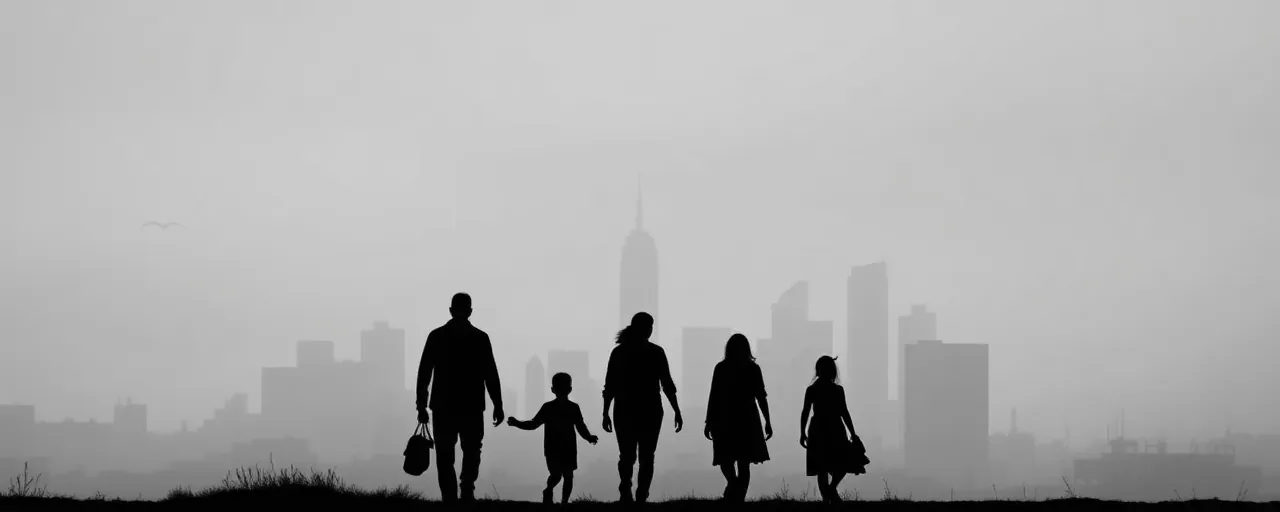A Policy Rooted in Fear
When President Donald Trump welcomed Salvadoran President Nayib Bukele to the White House on April 14, 2025, the agenda was clear: celebrate a hardline stance on immigration. The administration touted the deportation of dozens of alleged gang members to El Salvador, painting it as a victory for public safety. Yet this approach, drenched in spectacle, sidesteps a deeper truth. Deportation, as it’s being wielded, doesn’t solve crime or secure borders; it fractures lives and destabilizes communities on both sides of the border.
The stories of those deported, like Jorge Luis Guerrero-Quintero or Jose Lopez-Cruz, are harrowing. Their convictions for violent crimes demand accountability, no question. But the Trump administration’s narrative, which brands entire groups as 'killers' or 'animals,' flattens a complex reality into a convenient talking point. It’s a tactic that thrives on fear, not facts, and it’s tearing at the fabric of humanity we’re supposed to uphold.
What’s lost in this rhetoric is the human cost. Deportation doesn’t just remove individuals; it upends families, displaces children, and sends people to places where survival is a gamble. El Salvador, already grappling with the legacy of past U.S. policies, isn’t equipped to absorb this influx without consequence. The applause for these expulsions drowns out the cries of those left in their wake.
The Myth of the 'Violent Immigrant'
The administration’s focus on deporting alleged gang members, particularly those tied to MS-13 or Tren de Aragua, leans heavily on a single idea: immigrants are inherently dangerous. This notion isn’t new. It echoes decades of political rhetoric, from the 1996 Illegal Immigration Reform Act to Trump’s own campaign trail warnings about 'rapists' crossing the border. But the evidence tells a different story. Study after study shows immigrants, documented or not, commit crimes at lower rates than native-born Americans.
Take Chicago, a city often vilified for its migrant influx. Local leaders there have grappled with housing and feeding new arrivals, not policing rampant crime waves tied to immigration. The real strain comes from federal policies that dump responsibility on municipalities without resources to cope. Deporting people like Anderson Jose Querales-Martinez, convicted of assault, might feel like a win, but it sidesteps why crime festers: poverty, lack of opportunity, and cycles of disenfranchisement.
Then there’s El Salvador’s side of the equation. Many deportees, like Carlos Alvarenga Guillen, arrive to face stigma and overcrowded facilities like CECOT, the country’s mega-prison. Investigations have found some deportees lack any gang ties at all, swept up in a net cast too wide. Bukele’s anti-gang crusade, while popular, has drawn fire for human rights abuses, with mass arrests often prioritizing optics over justice. Deportation doesn’t dismantle gangs; it exports our failures to a nation still scarred by our past interventions.
A Legacy of Broken Systems
To understand why this policy falls short, look back to the 1980s and 1990s. Salvadorans fled a brutal civil war, many landing in Los Angeles, where MS-13 took root among marginalized youth. U.S. deportations after 1996 sent gang members back to El Salvador, planting the seeds for today’s violence. That history isn’t ancient; it’s a living wound. Sending people like Miguel Angel Fuentes-Lopez to face uncertain fates doesn’t erase that past. It deepens it.
Advocates for humane immigration reform argue for addressing root causes: economic despair, political instability, and the fallout of U.S. foreign policy in Central America. Yet the Alien Enemies Act, invoked by Trump to fast-track deportations, ignores due process and paints entire communities as threats. Critics of this approach, including international human rights groups, warn it fuels xenophobia while doing little to curb transnational crime. Gangs like Tren de Aragua thrive in chaos, not because of immigrants but because of broken systems we’ve yet to fix.
Some defend these deportations, claiming they protect American streets. But safety doesn’t come from shipping problems elsewhere; it comes from investing in communities, here and abroad. Expelling people like Elmer Concepcion Romero Yanes might clear a headline, but it doesn’t clear the conditions that breed violence. It’s a bandage on a wound we’ve spent decades ignoring.
Choosing Humanity Over Hate
The path forward isn’t easy, but it’s necessary. Deportation as a spectacle solves nothing; it’s a policy of convenience that betrays our values. We need immigration reform that prioritizes fairness, not fear. That means processing cases with transparency, supporting cities strained by migrant arrivals, and working with nations like El Salvador to build stability, not prisons. It means recognizing that people like Lino Perez Delgado are more than their worst moments.
The Trump-Bukele handshake may project strength, but true strength lies in compassion and accountability. We can’t undo history’s mistakes by repeating them. Let’s demand policies that heal, not harm, and build a future where borders don’t define our humanity. Anything less is a failure we’ll all carry.
